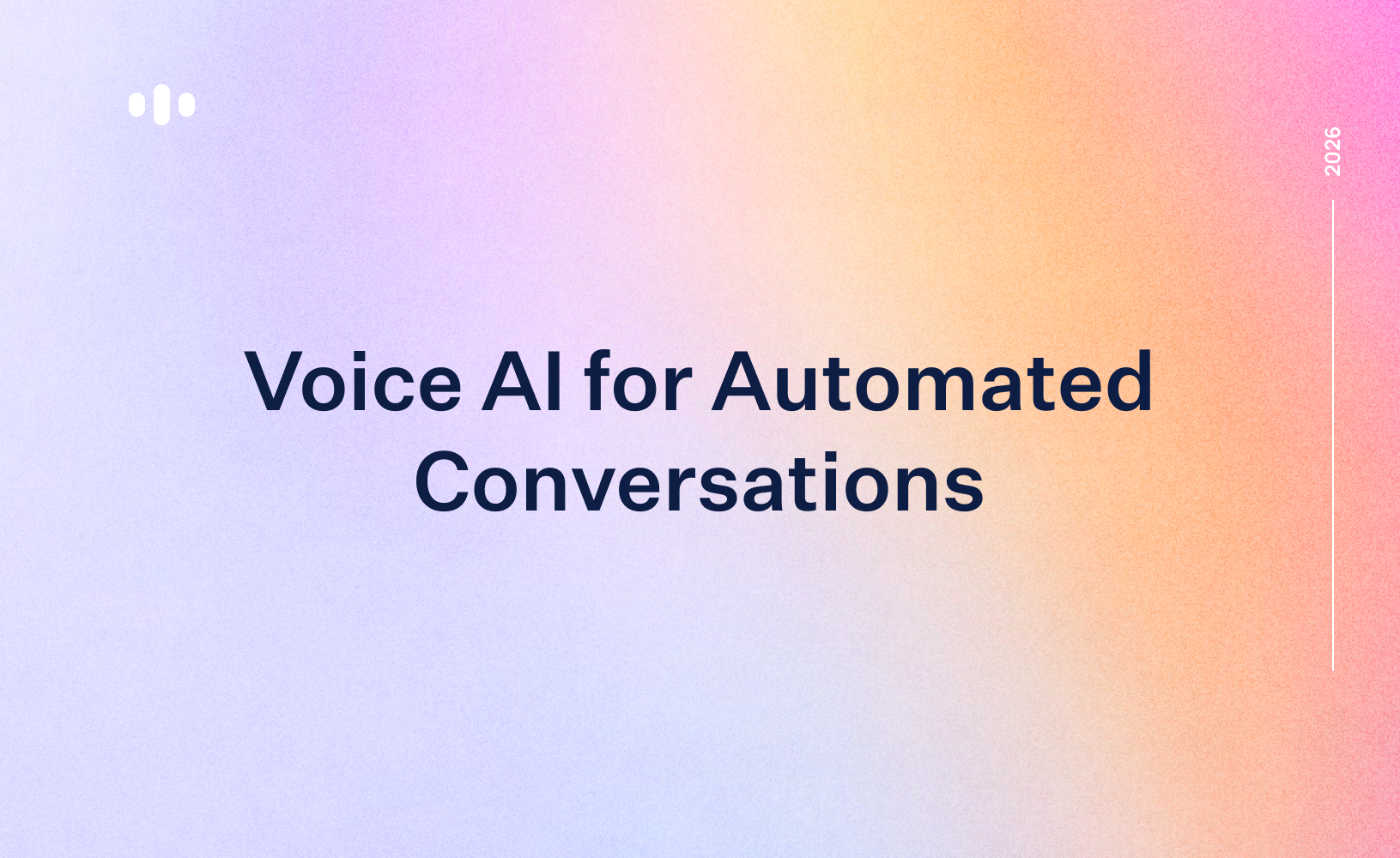Evaluating AI Voice Cloners for Finance: Security, Compliance, and Real-Time Readiness

Introduction — TL;DR
Voice cloning is no longer experimental; it is a $1.45 billion market racing toward $10 billion by 2030 (Grand View Research). Financial institutions must assess tools now to avoid being left behind.
- Banks are doubling down on voice-AI: Over 60 % of firms plan to increase investment by 2025, driven by service automation and fraud-detection goals (Forrester).
- Security is the top gating factor. Consumer Reports found four of six leading products lacked safeguards against unauthorized cloning (ZDNet).
- Compliance determines production-readiness. Platforms such as Retell AI offer PCI/HIPAA options and warm transfers; others like Descript Overdub excel in studio use but lack telephony stacks (Retell AI Blog).
- Customer trust hinges on natural delivery. Users prefer high-fidelity, emotionally expressive voices—WellSaid Labs wins 50 % of listener polls for realism (PlayHT Blog).
- Fraud risk is real. IBM reports a 35 % rise in voice-based scams, making verification and watermarking mandatory (IBM Blog).
- This guide distills evaluation criteria, security pitfalls, and side-by-side platform insights so finance leaders can choose the safest, most effective voice cloner and remain compliant while delighting customers.
Why Voice Cloning Matters in Financial Customer Service
- Customers crave 24/7, human-sounding help. Personalized voice bots shorten wait times, speed loan pre-qualification, and reduce operating costs, while still matching the warmth of a live rep.
- Market momentum is accelerating. The global voice cloning sector is posting a 26.4 % CAGR through 2030 (Grand View Research). Finance is singled out because transactions demand verbal confirmation and immediate empathy.
- Strategic upside is tangible. A University of Maryland study shows mobile fintech boosted transaction volumes by 25 %, indicating that friction-free channels drive revenue (University of Maryland Extension).
- Voice agents relieve overloaded teams. AI can qualify applicants within seconds of form submission, freeing human loan officers to close high-value deals, aligning perfectly with financial KPIs.
- Competitive differentiation is emerging. Institutions that embed voice AI into IVR and outbound collections gain response-rate advantages before rivals standardize similar tech.
Risk, Compliance & Trust: The Finance-Specific Challenge
- Fraudsters love cloned voices. “A common use of non-consensual cloning is scamming people” (ZDNet). Banks must deploy stronger identity verification than consumer brands selling merchandise.
- Security breaches are rising sharply. IBM tracked a 35 % year-over-year increase in reported voice-based fraud incidents in 2023 (IBM Blog).
- Regulators are watching. PCI DSS and FDIC guidelines compel encryption, consent tracking, and audit logs for any call that includes payment or PII.
- Consumer psychology matters. Hearing a convincing voice replica may lure customers into revealing account numbers (University of Maryland Extension).
- Ethics shape brand equity. Unauthorized cloning erodes trust; robust consent flows, real-time watermarking, and playback detection protect both customers and institutions.
Five Core Evaluation Criteria for Financial Voice Cloners
- 1. Audio Fidelity & Latency
High bit-rate synthesis must stream with <300 ms lag over SIP or Twilio. First-call resolution drops if overlaps or robotic pauses frustrate callers. - 2. Security & Consent Verification
Look for real-time speaker recording or consent statements like Descript’s “read-aloud” check (ZDNet). Multi-factor identity blends credit-card fingerprinting, IP logging, and watermarking. - 3. Compliance Frameworks
Native PCI, HIPAA, SOC 2, and GDPR controls reduce legal overhead. Retell AI bundles HIPAA/PCI options out-of-the-box for heavily regulated calls (Retell AI Blog). - 4. Integration & Deployment Flexibility
REST APIs, WebSockets, and drag-and-drop builders accelerate rollout. Outbound dialers, CRM syncing, IVR passthrough, and warm transfer support transform agents into production systems, not demos. - 5. Monitoring, Analytics & Tuning
Dashboards tracking sentiment, call success rates, and possible policy violations let QA teams catch red flags quickly. Post-call transcripts feed training loops for continuous improvement.
Side-by-Side Platform Analysis
Retell AI
- Purpose-built for compliance-heavy, real-time phone conversations. Forrester names Retell AI the leader in regulated voice AI thanks to PCI/HIPAA conformity and warm transfer routing (Forrester).
- Feature completeness is enterprise-grade. No-code builder, batch outbound, knowledge-base grounding, and multilingual synthesis deliver full contact-center coverage.
- Security posture leverages live transcription, consent logs, and churn-resistant analytics for risk audits.
- Integration ease is high. Direct connectors for Twilio, Vonage, SIP, and Cal.com mean existing telephony stacks remain intact.
Descript Overdub
- Broadcast-quality audio for post-production. Overdub is “the only 44.1 kHz broadcast-quality speech synthesizer” (Retell AI Blog).
- Consent gating is strong. Users must read a statement before cloning, preventing most non-consensual attacks (Descript).
- Live call limitations. Descript lacks SIP or PSTN routing, so banks would need middleware to support real-time advising.
- Cost profile is low. Plans start at $12/month, good for marketing content rather than customer service (Fahimai).
WellSaid Labs
- Praised for ultra-natural enterprise voices. “WellSaid Labs focuses on creating high-quality, realistic AI voiceovers for professional use” (PlayHT Blog).
- Security edge versus competitors. Its review highlights better quality and consent discipline than Resemble AI, mitigating ethical concerns (WellSaid Labs).
- Pricing reflects premium posture. Team seats start at $89.08/month plus usage (WellSaid Labs).
Resemble AI
- Emotionally rich voices. Platform excels in custom voice creation with tonal control for games and finance help desks (PlayHT Blog).
- Innovative real-time consent. First voice clone must be captured on the spot, cutting identity-theft risk (ZDNet).
- Security caution. WellSaid review warns about possible ethical gaps compared with stricter providers (WellSaid Labs).
PlayHT
- Breadth over depth. Offers 800+ voices in 142 languages (PlayHT). Wide selection helps multinational banks localize IVR quickly.
- Marketing focus is mixed. Listing “pranks” as a use case raises flags for conservative finance teams (PlayHT).
- Competitive pricing and SDKs make PlayHT an attractive sandbox, but compliance controls lag behind niche finance specialists.
ElevenLabs
- High-fidelity synthesis across 20+ languages (ElevenLabs). Rapid voice creation benefits global call centers.
- Security weaknesses remain. Consumer Reports labelled ElevenLabs among tools lacking protections against unauthorized cloning (ZDNet).
- Best fit for content, not core banking calls until stronger safeguards arrive.
Speechify & LOVO AI (Quick Notes)
- Speechify prioritizes accessibility and content. Supports 30 languages and 130 voices but minimal enterprise compliance (Speechify).
- LOVO AI boasts 500k users and easy integrations but draws criticism for insufficient guardrails (LOVO). Both are valuable for marketing narration rather than KYC-sensitive dialogs.
Comparative Snapshot
| Platform | Real-Time Telephony | Consent Safeguards | PCI/HIPAA Options | Integration Depth | Financial Fit |
|---|---|---|---|---|---|
| Retell AI | YES | Multi-factor + watermark | Yes | Twilio, SIP, APIs | ✅ Highest |
| Descript Overdub | No | Read-aloud verification | Yes | Editing suite | ⚠ Studio only |
| WellSaid Labs | Limited | Secure uploads | Partial | REST, Teams | ✅ Content + IVR |
| Resemble AI | Yes | Live recording | Partial | Flexible API | ⚠ Requires vetting |
| PlayHT | No | Basic | No | JS/REST | 🚧 Limited safeguards |
| ElevenLabs | Beta | Minimal | No | API | 🚧 Use with caution |
Seven-Step Checklist to Select Your Vendor
- Clarify use case depth. Decide if you need FAQ-level automation, full loan onboarding, or outbound collections; each demands varying latency, analytics, and integration depth.
- Score security controls first. Validate consent workflows, encryption, and incident response. Consumer Reports’ findings show many vendors still fail basic tests (ZDNet).
- Audit compliance certifications. Ask for PCI Attestation of Compliance and HIPAA BAA options; Retell AI ships both, while most consumer-grade cloners do not.
- Test real-time latency under load. Simulate 50 concurrent calls to ensure the voice doesn’t lag or clip when markets are volatile.
- Benchmark voice realism with customers. A/B test two agents on a sample of borrowers; surveys help quantify trust and clarity.
- Evaluate analytics dashboards. Look for sentiment, success-rate, and red-flag keyword alerts for regulators.
- Plan a phased rollout. Start with non-monetary inquiries, expand to balance checks, then enable payments once KPIs and compliance audits pass.
Implementation Best Practices for Banks & Lenders
- Layer adaptive authentication. Combine voiceprint recognition with account PINs to detect impostors instantly; this aligns with IBM’s recommendation for “robust safeguards” (IBM Blog).
- Route edge cases to humans. Warm transfers ensure complex mortgage scenarios never stall, preserving Net Promoter Score.
- Continuously retrain on call logs. Retell AI auto-syncs knowledge bases, sharpening loan-qualification dialogue without manual scripting.
- Embed ethical usage policies. Ban certain utterances (e.g., “wire money to…”), mirroring Consumer Reports’ advice to block scam phrases (ZDNet).
- Gamify agent scoring. Display real-time dashboards so compliance officers can intervene when sentiment dips or scripts deviate.
Future Trends Shaping Financial Voice AI
- Hyper-personalized tones. Next-gen models will adjust cadence to match customer stress levels, improving empathy at scale.
- Watermarking standards. Industry coalitions and pending legislation will likely demand inaudible tags to trace every synthesized utterance, echoing IBM’s call for regulation (IBM Blog).
- On-device inference. Edge processing could remove cloud latency entirely, enabling instant verification even during network outages.
- Multilingual compliance. Institutions will serve global diaspora clients with real-time dubbing features; Resemble AI’s instant language translation hints at this trajectory (WellSaid Labs).
- Voice-enabled payments. Secure conversational commerce will let users authorize transfers by saying a passphrase, provided anti-spoofing evolves in parallel.
Key Takeaways
- Voice cloning is surging, but security gaps persist. Four of six popular tools failed basic anti-fraud tests—finance brands cannot overlook this reality (ZDNet).
- Retell AI stands out for regulated, real-time deployments with built-in PCI/HIPAA, multilingual support, and warm transfers, aligning directly with banking needs (Forrester).
- Descript, WellSaid, and others remain valuable for content or hybrid CX, but require supplemental telephony and compliance measures before fielding live account calls.
- Adopt a structured evaluation framework—audio fidelity, security, compliance, integration, analytics—before committing resources.
- Early movers will reap customer loyalty and operational savings as personalized, trustworthy voice agents become the new normal in financial customer service.
Ready to pilot secure voice AI? Explore Retell AI’s no-code builder and see how quickly your institution can launch a compliant, human-sounding phone agent.
FAQ Section
What is the projected market growth for voice cloning in financial services?
The voice cloning market is projected to grow from $1.45 billion to $10 billion by 2030, underlining its growing importance across industries, including financial services.
How are financial institutions planning to use voice AI in the future?
Over 60% of financial firms intend to increase investment in voice AI by 2025 to boost service automation and enhance fraud detection capabilities.
What are the key security concerns with AI voice cloning tools?
Security is a significant concern as major AI voice cloning tools currently lack adequate measures to prevent unauthorized cloning, making verification and watermarking essential.
Which platforms are recommended for compliance in financial voice AI?
Retell AI is highly recommended for its compliance with PCI/HIPAA norms, supporting secure real-time deployments in regulated financial environments.
Why is natural voice delivery important in AI voice cloning?
Natural voice delivery is vital as users prefer high-fidelity, emotionally expressive voices. Tools like WellSaid Labs are favored for their realistic and engaging voice outputs.
How can financial institutions use voice cloning safely?
By using platforms with built-in safeguards like consent verification, encrypted routing, watermarking, and PCI/HIPAA compliance. Tools like Retell AI are purpose-built for secure, real-time service in regulated industries.
Are AI voice cloners legal for banking use?
Yes, if implemented with consent management, encryption, and full regulatory compliance. Institutions must audit for PCI-DSS, HIPAA, and GDPR readiness.
What makes a voice cloner ready for financial services?
Look for low-latency performance, enterprise integrations (Twilio/SIP), consent gating, security certifications, and real-time analytics. Many consumer tools lack these.
How does voice realism impact financial customer service?
More realistic voices increase trust and engagement, especially during complex or high-stakes conversations like loan approvals, claims, or fraud alerts.
What’s the difference between content-focused voice cloners and real-time ones?
Content tools (like Descript or Speechify) are optimized for narration and editing. Real-time cloners (like Retell AI) are built for secure phone interactions and compliance-heavy workflows.
Citations
- https://www.grandviewresearch.com/industry-analysis/voice-cloning-market-report
- https://www.forrester.com/report/the-future-of-voice-ai-in-financial-services/RES176344
- https://www.zdnet.com/article/ai-voice-cloning-tools-arent-safe-from-scammers-consumer-reports-finds/
- https://www.retellai.com/blog/best-ai-voice-cloning-platforms-2025
- https://play.ht/blog/ai-apps/vs/wellsaid-labs-vs-resemble-ai/
- https://www.ibm.com/blog/ai-voice-cloning-ethics-security
- https://extension.umd.edu/resource/relevance-financial-technology-bridging-gap-between-consumers-and-services-fs-2024-0724
- https://www.descript.com/overdub
- https://www.fahimai.com/descript-vs-wellsaid-labs
- https://www.wellsaid.io/resources/blog/top-ai-voice-platforms
- https://www.play.ht/
- https://www.elevenlabs.io/
- https://www.speechify.com/ai-voice-generator/
- https://www.lovo.ai/
See how much your business could save by switching to AI-powered voice agents.
Your submission has been sent to your email
ROI Result
Total Human Agent Cost
AI Agent Cost
Estimated Savings
A Demo Phone Number From Retell Clinic Office





